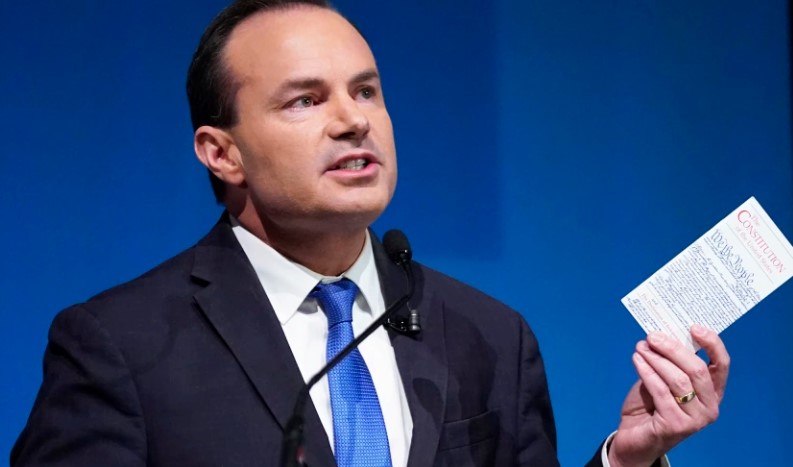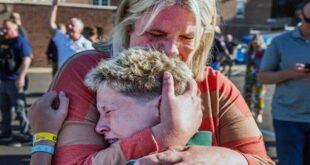
Events in Minnesota took a tragic turn on June 14, 2025, when politically motivated shootings shocked the nation. Former House Speaker Melissa Hortman and her husband were killed in their home. State Senator John Hoffman and his wife were critically injured in a separate attack. The suspect, Vance Boelter, is believed to have impersonated a police officer during these targeted killings.
Amid this tragedy, Utah Senator Mike Lee found himself embroiled in controversy. His remarks on the incident have triggered widespread backlash, fueling debates about political rhetoric, accountability, and the role of public figures in addressing national crises.
A Devastating Event
The brutal attacks on Minnesota lawmakers have left the nation reeling. Authorities suspect Vance Boelter, a 57-year-old with significant experience in security services, of orchestrating the violence. Police discovered a manifesto in Boelter’s car. It reportedly listed several lawmakers and others as targets. This detail marks the incident as a politically motivated attack, further heightening the gravity of the situation.
The attacks have prompted concerns about the safety of public officials. Lawmakers and citizens alike are now questioning the systems in place to prevent such tragedies.
The Mike Lee Controversy
Senator Mike Lee added fuel to the fire with a series of posts on X (formerly Twitter). His comments appeared callous to many. For instance, one post displayed an image of the suspect alongside the caption, “This is what happens. When Marxists don’t get their way.” He also poked at Minnesota Governor Tim Walz, calling him “Nightmare on Waltz Street.”
These remarks shocked followers and critics alike. Many accused Lee of trivializing a somber event and exploiting the tragedy for political points.
Backlash and Criticism
The public response was immediate and harsh. Calls for Lee’s resignation swept across social media. Critics argued that his comments were “unbecoming of an elected official” and undermined the seriousness of the tragedy.
To some, this controversy reflects a broader shift in political discourse toward divisive rhetoric. Critics pointed out how words matter, especially during moments of collective grief. One commenter described Lee’s behavior as “a radicalized and mocking tone that disrespects the victims.”
Even members of Lee’s own party seemed troubled. Utah leaders across the political spectrum condemned the attacks in Minnesota and called for unity. While many delivered their statements with empathy, Lee’s remarks stood apart in their perceived insensitivity.
1. Political Rhetoric and Leadership
Public officials carry the responsibility of fostering unity during crises. Senator Lee’s choice of words, critics argue, stands in direct opposition to this principle. His comments highlight the growing problem of polarizing rhetoric in American politics.
Division fueled by inflammatory statements can deepen societal wounds. Leaders should encourage healing, reminding people of shared humanity, rather than using tragedy for partisan attacks.
2. The Role of Social Media
Platforms like X amplify the voice of public figures. While this allows for greater connection, it also increases the impact of poor judgment. Lee’s posts serve as a case study in the risks of reckless communication online.
Social media offers instant reach, but it also demands responsibility. Leaders must consider how their words will resonate beyond their immediate audience.
3. Political Violence and Public Safety
The Minnesota shootings underline rising concerns over political violence. The presence of a manifesto and Boelter’s calculated approach raise urgent questions about security for public servants. It also demands reflection on broader societal tensions that contribute to such acts.
Policymakers face renewed calls to explore preventive strategies. These could range from enhanced security protocols for public officials to addressing root causes of political extremism.
Questions from the Public
Following the controversy, people searched for clarity on various aspects:
“What did Mike Lee say about the Minnesota shootings?”
“Who is Vance Boelter?”
“How are Minnesota lawmakers responding to the tragedy?”
These questions reveal a hunger for understanding the unfolding crisis, its key players, and broader implications.
Moving Forward
Mike Lee’s comments and the tragedy in Minnesota serve as a reminder. Words have power. Leaders can either foster healing or deepen divisions. Public officials must tread carefully, especially in times of collective grief. Empathy, accountability, and a commitment to unity are essential.
For the public and policymakers, events like these highlight the need to address rising polarization and political violence. They also call for re-examining how leaders communicate with those they serve.
The Minnesota shootings were a tragic moment in U.S. history. They claimed lives, shattered communities, and exposed vulnerabilities. Amid such devastation, the role of trusted leaders becomes even more critical.
This incident challenges us all officials and citizens alike to champion respect, responsibility, and solidarity. Only then can we honor those lost and work toward a safer, more united future.
 GDW Media
GDW Media


